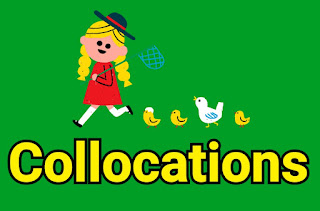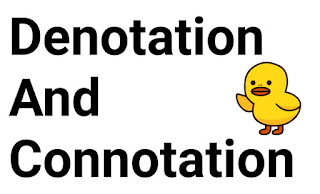COLLOCATIONS
Exercise 1
Look at the lists below and decide which adjectives can be used with which nouns. (Some adjectives can combine with more than one noun.)
Adjective - heavy, strong, light
Noun - wind, sunshine, snow
Answers
1. heavy: snow
2. strong: wind; sunshine
3. light: wind; snow
Heavy and strong have very similar meanings but they cannot always be used with the same nouns. For example, heavy commonly combines with snow but not with wind and sunshine. Light has the opposite meaning of heavy and strong in this context.
A pair or group of words that regularly appear together is called a collocation. For example, heavy snow and strong wind are collocations while heavy wind is not. The fact that these words appear together so regularly cannot simply be change and so we say that the words collocate with each other.
Words which combine with each other but not with very many other words are called strong collocators and form strong collocations. For example, the adverb strongly collocates with recommend, advise and agree but with few other verbs, so strongly recommend/advise/agree are strong collocations. Those that combine with a large number of other words are weak collocators and form weak collocations. Generally, the more common a word is, the weaker the collocations it forms.
Register can affect collocation. For example, in the register of the police you would probably find that examine evidence is a strong collocation, while in a more general use you would probably find look at/think about information/evidence is more common.
Exercise 2
Look at the lists below and decide which verbs collocates with which nouns. What meaning does the verb have in each collocation?
Verb - go, catch, take
Noun - a pill, home, mad, a bus, a ball
Answers
go: home; mad
go home = travel home home;
go mad = become mad
catch: a bus; a ball
catch a bus = get on a bus;
catch a ball = receive a ball which is thrown in your hand
take: a pill; a bus
take a pill = swallow a pill;
take a bus = travel on a bus
Words can change their meaning depending on the collocation. For example, in go home the verb means 'travel' but in go mad it means 'become'. The best way to decide the meaning of common verbs such as go, catch and take is to look at the context they are used in (the situation or the words before and after a particular word). A good dictionary will list the collocations of common words. 😊



Is the subscriptions available?
ReplyDeleteSorry, not yet.
Delete